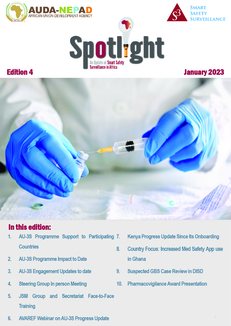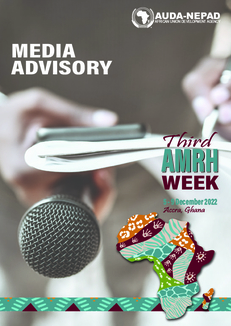Background
Agenda 2063 is Africa’s blueprint and master plan for transforming Africa into the global powerhouse of the future. It is the continent’s strategic framework that aims to deliver on its goal for inclusive and sustainable development. Furthermore, it seeks to deliver on a set of Seven Aspirations each with its own set of goals which if achieved will move Africa closer to achieving its vision for the year 2063. The first one is aspiring for “A prosperous Africa based on inclusive growth and sustainable development”. One of the goals attached to this aspiration is “transforming Africa’s economies through beneficiation from Africa’s natural resources, manufacturing, industrialization and value addition, as well as raising productivity and competitiveness”.
One of its flagship projects is the Establishment of the African Continental Free Trade Area (AfCFTA): accelerate intra-African trade and boost Africa’s trading position in the global market place. The AfCFTA aims to significantly accelerate growth of Intra-Africa trade and use trade more effectively as an engine of growth and sustainable development by doubling intra-Africa trade, strengthening Africa’s global trade negotiations. Private sector development is one of key factors that could contribute towards the realization of this flagship project. Quality and productivity improvement (QPI) is unavoidable pass to gain competitiveness along the value chain in general and transforming SMEs and industries competitiveness in particular for entering international market and global value chain.
A number of studies indicate the challenges Africa is facing in its endeavour for economic transformation. COVID-19 aggravated those challenges by exposing African industries to unexpected internal and external shocks that could affect their progress in a number of ways. An UNCTAD study conducted in July 2020 estimated that COVID-19 could drag African economies into a fall of about 1.4% in GDP, with smaller economies facing contraction of up to 7.8%. The contraction is mainly a result of export adjustments affecting primary commodity exporters, and the attendant losses to tax revenue which reduce the capacity of government to extend public services necessary to respond to the crisis. Overall, the study estimated a regional average of about 5% in public revenue losses in Africa, with total merchandise exports contracting by about 17%.
Despite such unprecedented shock, Africa is struggling to take countermeasure and move forward. It is believed that quality and productivity improvement or Kaizen/QPI can help Africa’s efforts in modernising its industries; create decent and clean workplaces whereby workers safety is protected including reinforcing COVID 19 safety measures; improve quality along the value chain of production; improve productivity of inputs and outputs; assist to build competitive industries; develop the technical skills of workers and managerial capability; improves the business dividends and workers benefits and expands investment by generating additional revenue and profits with the same level of capital thereby creating additional job opportunity.
The introduction of Kaizen is beyond QPI, reducing costs and wastes. The basic changes it can bring are in the mind-sets of business owners, managers, supervisors and workers: the attitude of ‘Yes We Can’. Rectifying workplace challenges and developing problem solving skills eventually building the sprite and practice of creativity and innovation. In this way, companies can turn adversities caused by the pandemic to opportunities for developing new business in the changing environment. The overall impact could be contributing to the attainment of flagship projects like AfCFTA and transforming Africans MSMEs.
In order to accelerate the realization of those positive impacts of Kaizen in Africa, JICA and African Union Development Agency New Partnership for Africa's Development (AUDA-NEPAD) have launched “Africa Kaizen Initiative (AKI)” in 2017 with key strategies. To operationalize those key strategic activities of AKI, AKI-AP 2021-2025 is developed and in good progress. In this context, Africa Kaizen Annual Conferences (AKAC) and Africa Kaizen Awards (AKA) are organized to create a platform for sharing knowledge, experiences, and information that could stimulate continental commitment through nurturing QPI/Kaizen movement in Africa.
In recognition of the importance of Kaizen/QPI to improve the productivity of industries in Africa at the 6th Tokyo International Conference on African Development (TICAD VI) in 2016 hosted by the Republic of Kenya, AKI was proclaimed in April 2017. TICAD 8 will be held from August 27th-28th in 2022 hosted by the Republic of Tunisia. Based on the momentum created by TICAD 8, AKI shall be accelerated to increasingly contribute to Africa development agenda and aspiration.
From October the 4th-5th 2022, the 7th edition of AKAC 2022 is organized in Cameroon. This conference focuses on reviewing AKI activities in 2022 and exploring ways of streamlining them with the aspiration of Agenda 2063 and in particular efforts of the African Continental Free Trade Area (AfCFTA).




